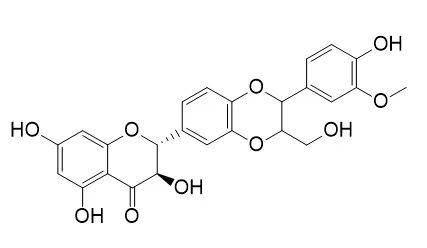Because cancer is often treated with combination therapy, unexpected pharmacological effects can occur because of drug-drug interactions. Several drugs are able to cause upregulation or downregulation of drug transporters or cytochrome P450 enzymes, particularly CYP3A4. Induction of CYP3A4 may result in decreased plasma levels and therapeutic efficacy of anticancer drugs. Since the pregnane X receptor (PXR) is one of the major transcriptional regulators of CYP3A4, PXR antagonists can possibly prevent CYP3A4 induction. Currently, a limited number of PXR antagonists are available. Some of these antagonists, such as sulphoraphane and coumestrol, belong to the so-called complementary and alternative medicines (CAM).
METHODS AND RESULTS:
Therefore, the aim was to determine the potential of selected CAM (β-carotene, Echinacea purpurea, garlic, Ginkgo biloba, ginseng, grape seed, green tea, milk thistle, saw palmetto, valerian, St. John's Wort, and vitamins B6, B12, and C) to inhibit PXR-mediated CYP3A4 induction at the transcriptional level, using a reporter gene assay and a real-time polymerase chain reaction assay in LS180 colon adenocarcinoma cells. Furthermore, computational molecular docking and a LanthaScreen time-resolved fluorescence resonance energy transfer (TR-FRET) PXR competitive binding assay were performed to explore whether the inhibiting CAM components interact with PXR. The results demonstrated that milk thistle is a strong inhibitor of PXR-mediated CYP3A4 induction. The components of milk thistle responsible for this effect were identified as silybin and Isosilybin. Furthermore, computational molecular docking revealed a strong interaction between both silybin and Isosilybin and PXR, which was confirmed in the TR-FRET PXR assay.
CONCLUSIONS:
In conclusion, silybin and Isosilybin might be suitable candidates to design potent PXR antagonists to prevent drug-drug interactions via CYP3A4 in cancer patients. |







 Cell. 2018 Jan 11;172(1-2):249-261.e12. doi: 10.1016/j.cell.2017.12.019.IF=36.216(2019)
Cell. 2018 Jan 11;172(1-2):249-261.e12. doi: 10.1016/j.cell.2017.12.019.IF=36.216(2019) Cell Metab. 2020 Mar 3;31(3):534-548.e5. doi: 10.1016/j.cmet.2020.01.002.IF=22.415(2019)
Cell Metab. 2020 Mar 3;31(3):534-548.e5. doi: 10.1016/j.cmet.2020.01.002.IF=22.415(2019) Mol Cell. 2017 Nov 16;68(4):673-685.e6. doi: 10.1016/j.molcel.2017.10.022.IF=14.548(2019)
Mol Cell. 2017 Nov 16;68(4):673-685.e6. doi: 10.1016/j.molcel.2017.10.022.IF=14.548(2019)